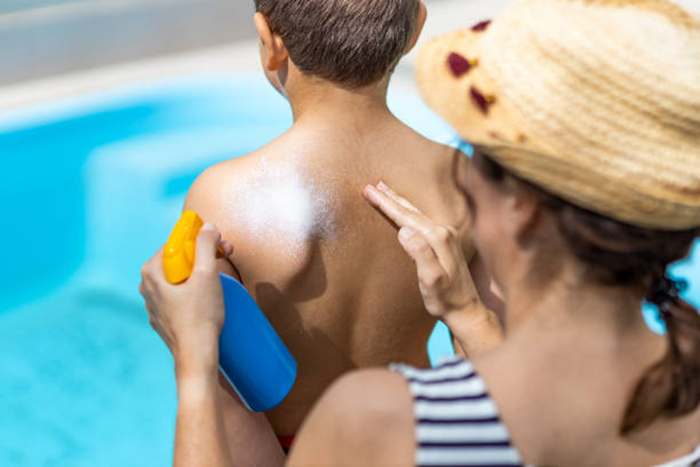
Published on July 22, 2022
Read Time: Two Minutes
Warm, sunny days are great times for children to play outside. From riding bikes to swimming at the pool, summertime is ideal for children to get outdoors and have fun.
As children spend more time outside, they are more exposed to the sun, as well as bugs and insects that also enjoy warmer weather.
To ensure children safely enjoy summer activities, Andrea Crossley, MSN, CPNP-PC, who specializes in pediatrics at Phelps Health offers suggestions for sunscreen and insect bites.
Sunscreen Recommendations
As we all have probably learned at some point in our lives, spending too much time in the sun can lead to sunburns. That's why wearing sunscreen is so important.
According to the American Academy of Pediatrics, sunscreen should be applied to any exposed skin regardless of skin tone. Use a sunscreen that is labeled broad spectrum with an SPF (sun protection factor) of at least 15.
For children ages 6 months and older, make sure to apply sunscreen all over, but be careful around the eyes. For babies under 6 months, you can apply sunscreen to areas that are not covered by clothes or hats.
Also, use enough sunscreen and reapply at least every 2 hours, especially after swimming or sweating.
Insect Bites and Stings
In addition, children are prone to bug bites and stings during summertime.
Most insect bites can be treated at home. Make sure any stingers are removed, and clean the site with soap and water. You can use a washcloth with ice or cold water to help reduce any swelling.
After that, you can apply an antibiotic cream. You also can use an antihistamine lotion, such as hydrocortisone cream, which can help reduce itching.
If your child has an allergic reaction to a bug bite or sting, you need to seek medical attention immediately. Symptoms of an allergic reaction may include fever, rash, trouble breathing or trouble swallowing.
To prevent bug bites, you can spray your child with an insect repellent approved for children. Be sure to dress your children appropriately, covering their arms and legs.
For More Information
Learn more about pediatric services offered at Phelps Health.